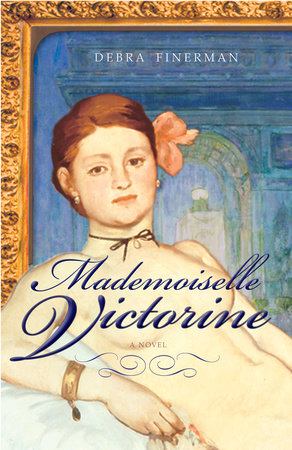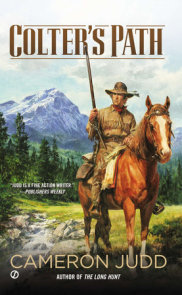READERS GUIDE
Rich and evocative, Mademoiselle Victorine is a novel of changing times, of the powerful intersection of art and politics, and of how one determined woman made her place in history. The questions in this guide are intended as a framework for your group’s discussion of Mademoiselle Victorine.
Questions and Topics for Discussion
1. Describe your first impressions of Victorine and Manet. What was your initial opinion of each of them, and in what ways did your view change as the novel went on? How did it stay the same?
2. Prior to reading Mademoiselle Victorine, what did you know about the French Impressionist painters? Was there any knowledge of their work or lives that illuminated your reading of the book?
3. How would you characterize the relationship between Victorine and Julia? Are they allies and friends, or rivals? If you were Victorine, how would you feel about Julia, and vice versa? Did you find yourself identifying more with one than the other?
4. Consider the character of Queen Mabille. What does the old woman represent to Victorine, and in a larger sense, what role does she play in the Paris of this novel? What did her story add to your understanding of the world these characters inhabit?
5. Several of the characters in Mademoiselle Victorine came from wealthy backgrounds, but had shunned their privileged existences to live a bohemian life. What does Victorine think of this choice? Is it something she understands and accepts? Why or why not? What about you? When you hear of modern-day children of wealth “giving it all up” to become artists, what assumptions do you make? Would any of those assumptions be valid in the case of these characters?
6. Throughout the novel, Victorine continually reinvents herself and refines the story she tells of her background. What are some examples of the different stories she tells, and is there anywhere you see her getting caught in her own web and having to shift on a dime when she forgets what she’s told whom? Why do you think her story is so complex and changes so much? Were there places you thought she had gone too far, beyond the point of lying for understandable reasons?
7. Discuss the character of André. What role does he play in the lives of those around him? André writes a popular society column. Did it surprise you that Paris in the 1860s had tabloids that reported gossip? Can you think of equivalent magazines or newspaper columns today?
8. Did Victorine remind you of any other literary or historical figures? If so, who, and in what way? Where else have you seen the story of a young woman pulling herself up by her bootstraps to find herself living at the pinnacle of society? Of artists’muses? Of the courtesan made good? What, if anything, makes Victorine different?
9. Were you surprised by the revelation of Victorine’s lineage? Why or why not? How did this news change your view of the man who turns out to be her father? Did it change Victorine’s opinion of him, or her ideas on life and love in general? What, if any, lasting effect did you see the knowledge of the story behind her conception and birth having on Victorine?
10. What do you think inspires Philippe’s ultimate change of heart? Did the transformation take you by surprise? What effect does it have on Victorine?
11. Discuss the portrayal of the leftist rebels in Mademoiselle Victorine. In the world of this novel, did you find their cause just? How did you feel about their methods? What part did the Communards play in the plot of the novel, and what did you think of this picture of them?
12. Philippe’s liaison with a much younger, beautiful woman was common knowledge and not socially unacceptable. But when it became a political liability that threatened to ruin his career, his actions and attitudes toward Victorine changed. Is this a familiar scenario? Why do you think political figures of all eras get caught in such situations though they know the risks?
About this Author
Debra Finerman began her career in journalism, and later attended the prestigious Christie’s Graduate Program in Connoisseurship and the Art Market. This is her first novel.




















